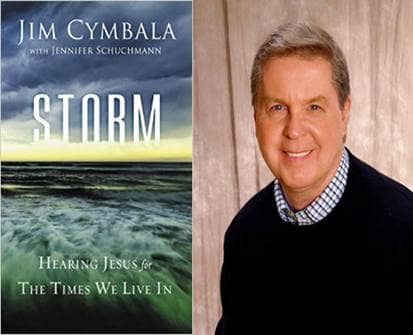
WARNING NO. 1 – WE’RE NOT AS BIG AS WE THINK
A quick Google search will reveal some surprising statistics about Christians in America. For example, one website says that 246,780,000 people (79.5 percent of the population) in the United States are Christians.1 That’s a huge percentage of Americans who claim to be followers of Christ!
But is it true or a bogus number?
If nearly 80 percent of the population were Christian, wouldn’t we see the effects of that in culture?
Let me ask the question in a different way. Are eight out of ten people in your school, office, or community Bible-believing, churchgoing followers of Jesus? That’s not the case in Brooklyn, where I live and work. My guess is that’s not the case where you live either.
In the book The Great Evangelical Recession, author John S. Dickerson takes a closer look at these often exaggerated statistics and the data behind them and finds that the numbers don’t add up. He points out that the vast majority of those claiming to be “Christian” rarely attend any church, nor do they trust in Christ alone for their salvation, nor do they value God’s Word as the only rule for faith and practice.
You’ve run into this before, right?
You’re in a conversation with someone who said they were a “Christian,” but as the conversation moves deeper, you find their thinking plainly non-Christian. They don’t value the Bible as God’s Word. Or they maintain that there are multiple ways to receive salvation and Jesus is just one of those. What they describe is so different from what you know the Bible teaches, it is hard to imagine how they could call themselves believers in Jesus.
Jenny, a friend from church, recently had a conversation with a woman who identified herself as a Christian. Yet as the conversation developed, the woman also told Jenny that she believed that everyone should make up their own religion. Perhaps they should also make up a name for that religion, because it is not Christianity!
To get an accurate count of Bible-believing Christians in America, Dickerson looked at four studies by four different researchers who had four different motivations and used four different methodologies to calculate the number. Their unanimous conclusion was that “the actual number of evangelical Christians is shockingly between 7 to 8.9 percent of the United States population, not 40 percent and certainly not 70 percent.”2 That’s right, only 7 to 8.9 percent of America.
The truth is that the number of real believers in Jesus is in a massive decline, and that decline is happening much more rapidly than we have thought. While many boast of America being a “Christian nation,” Dickerson’s researchers say it’s fewer than one out of ten. And it gets worse. He predicts that within thirty years, the number of evangelical Christians will drop to one in every twenty-five Americans!
These numbers are a clear warning that the lights are going out.
WARNING NO. 2 – PERSONAL TRANSFORMATION IS RARE
Over the last decade, leaders from several denominations have told me that new members, average attendance, baptisms, and giving have all declined in their churches. The largest evangelical denomination sadly reports that new converts as measured by baptisms in 2012 was the lowest since 1948!
Talking with pastors throughout the country, I know these trends aren’t limited to any one denomination. Recently, while in Louisiana, I prayed at an altar with a pastor who was distraught over the lack of spiritual results in his ministry. This man had been a pastor for nearly thirty years and had weathered many of the typical ups and downs pastors experience. He had a passion for ministry, and all he wanted to do was lead people to Jesus. With a heavy heart and tears in his eyes, he said, “Listen, Jim, I love God, but I haven’t baptized ten new converts in two years! There are people all around who need Jesus, but I can’t seem to reach them. I don’t know what to do.” Then he broke down sobbing.
His story isn’t unique or surprising.
In 2012 the Barna Group found that 46 percent of churchgoers said “their life had not changed at all as a result of churchgoing.”4 On top of that, “three out of five church attenders (61 percent) said they could not remember a significant new insight gained by attending church services.”5 What is even more bothersome is that “one-third of those who have attended a church in the past have never felt God’s presence while in a congregational setting” (emphasis added).
Think of it: More than half of churchgoers don’t remember even one significant new insight gained by going to God’s house!
Something strange is going on here.
It is obvious the overwhelming majority of our ministries are not producing much fruit in the form of converted, changed lives. And people are not experiencing God in our churches. This would have been unthinkable in the early days of the Christian church as described in the New Testament. This is a critical warning sign that something is terribly wrong.
WARNING NO. 3 – BIBLICAL LITERACY IS DECLINING
Not only are the majority not getting spiritual insight from their church experience, but a growing number aren’t getting it from the Bible either. According to the American Bible Society’s “State of the Bible 2013” report, the number of Americans who are antagonistic toward the Bible has increased from 10 percent to 17 percent from 2011 to 2013.7 Where will we be in five or ten years if this trend continues?
To counter that statistic, at first glance it might seem positive that two out of three Americans believe the Bible contains everything a person needs to live a meaningful life.8 But only one out of five (21 percent) actively read the Bible at least four times a week.9 Even among churchgoers who believe the Bible is the inspired Word of God, only 20 percent say they think about it during the day.
10 God has spoken to us through his Word, but fewer are taking the time to listen.Surveys also show that there is barely any difference between the lifestyles of Christian churchgoers and the behavior of those who don’t believe in God at all. Yet the Scriptures define believers in Jesus as “saints,” a people who have been separated from the world and belong exclusively to Jesus.
Fewer people inside the church believe in the truth and power found in Scripture. An even smaller percentage actively read and apply its truth to their lives. This turning away from Scripture is another calamitous sign.
Taken from Storm by Jim Cymbala. Copyright © 2014 by Jim Cymbala. Use by permission of Zondervan. www.zondervan.com



